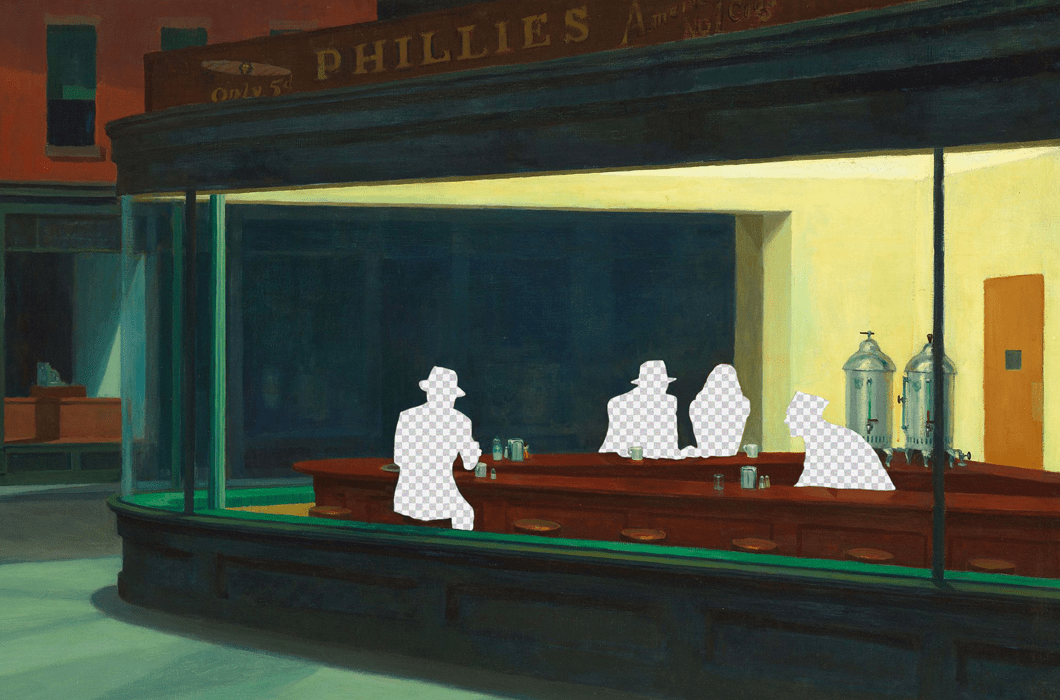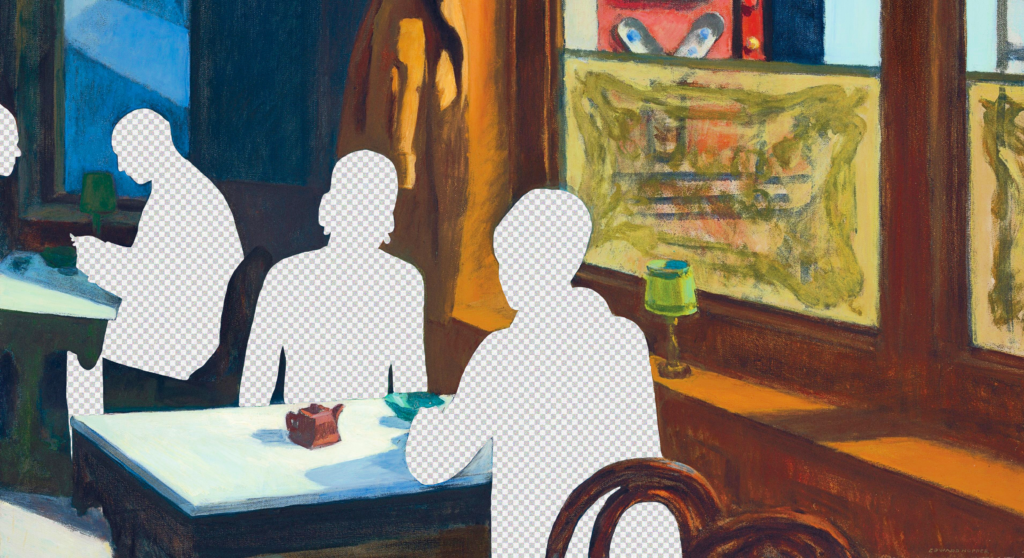
Keeping Nightlife Alive in New York City
While the pandemic sweeps across the nation, the nightlife industry in New York City struggles to keep afloat.
Just a few months ago, twenty and thirty-something Brooklynites would crowd into Jupiter Disco, a hip, sci-fi themed bar on the edge of Bushwick on any given Friday and Saturday. There would be a packed bar, an electrifying dance floor, and an epic bathroom line. But these days, Jupiter Disco is almost completely empty.
Al Sotack, a co-owner of the bar, works alone, wiping the counters and worrying about his establishment’s future amidst the coronavirus pandemic. Sotack had to let all of his employees go so they could claim unemployment and was forced to close his doors to customers, transforming his once-bustling watering hole into a liquor store that provides drinks to New Yorkers in quarantine.
“You have millions of people just completely out of work with no real way to make any sort of income at all,” Sotack said in a video call with The Interlude. “There needs to be real support and I believe it needs to come from the state or we are completely fucked.”
Sotack isn’t alone. New York City bars, clubs, and liquor stores are struggling to adapt to the new economic and social realities while also trying to follow ever-changing guidance from the government. In March, the state shut down bars and restaurants (except for delivery and pickup) and legalized takeout alcoholic beverages. Outdoor dining became available in June, but was followed by the prohibition of outdoor drinking without food in July. However, following the guidelines presents tough challenges for the nightlife industry, as its appeal mainly comes from large crowds, open drinks, and loud conversations.
The restrictions the pandemic has brought have made the already tough nature of running bars, clubs, or liquor stores even harder. New York’s 2,100 bars account for about 5% of its nightlife industry, supporting 13,400 jobs, generating $492 million in wages and $2 billion in economic output, according to a recent report conducted by the Office of Nightlife. The same report revealed that 40% of business owners (restaurant, bar and dance clubs) were “either unsure or indicated that their businesses would not be open in three years.” Additionally, 47% of owners reported “a decrease in profit over the same period, with 17% experiencing a decrease that exceeded 10%.” To summarize, it is a challenging line of work.
“It seems there are a lot of life or death moments in the course of a successful bar’s lifetime and obviously most bars fail,” Sotack said. “Pretty much from the time you open, it really has to be a labor of love or why do it? From the time you open, it is a constant struggle.”
Sotack, who had been bartending two times a week, is now operating the bar single-handedly with his business partner and friend Maks Pazuniak. The only interaction he has with customers is when he walks to the door, masks and gloves on, to give them their to-go liquor order before retreating back to Jupiter.
“The bar was sustainable and then all of a sudden you cannot function at all,” he said.“Everything is on hiatus. I have no clue what will happen next. I think it is a pretty weird experience than just the day-to-day focus on growth and improvement.”
Sotack always wanted to open a bar and finally made it a reality in 2013 after teaming up with Pazuniak. Sotack used to be a freelance writer, but in the last couple of months, the bar had been his only source of income.
“There is also nothing to do here,” Sotack said, laughing. “Selling our liquor was just us liquidating our inventory because we have no way to pay. We are done. We have nothing right now.”
With the closure of nightlife operations, many vendors, alcohol distributors and DJs have also found themselves jobless. Gabriel Levy, one of the owners and operators of Rumpus Room on the Lower East Side, had to lay off his employees like Sotack.
“I feel for my employees and my contractors and for the vendors that we work with,” he said in a Zoom interview with The Interlude. “If you think about it, no business is an island.”

Photo illustration by Téa Kvetenadze
Rumpus Room has been closed since March, after trying to safely stay open as long as possible. Since Rumpus Room is a club, not a bar with food availability, takeout, delivery, and outdoor dining/drinking were not viable options. Starting in late February, Levy and his partners started reviewing incoming government policies and trying to revise their own health guidelines. At the beginning, this meant the bartenders wearing masks and gloves, deep cleaning the bar before and during the night, and not letting anyone who appeared to be sick in.
But by the first weekend of March, Levy had already noticed business was slowing, with an increase of cancellations from concerned customers. By the second weekend of March, they were “completely dead.” Levy said the club relies on advance bookings for business, which all but halted as soon as coronavirus cases began to spike in NYC.
“We are a small company that lives very leanly, we live pretty much hand to mouth,” Levy said. “We need to operate in order to be able to pay our expenses.”
While Levy supported Cuomo’s decision to close down, he was disappointed with the few steps taken to help small business owners.
One of these steps was Congress passing the Coronavirus Aid, Relief, and Economic Security (CARES) Act. The law, signed on March 27, was “intended to assist business owners with whatever needs they have right now,” according to the NYSRA website. A part of the CARES Act is the Paycheck Protection Program (PPP) which provides loans to help businesses keep their workforce employed during the pandemic. Business owners can have the loan forgiven if they use only 40% of the loan to pay for business costs such as rent, insurance, and utilities and use the rest towards the payroll of their employees. If they choose not to follow this rule, they have to pay back the loan.
Rumpus Room was given $50,000, however, Levy’s employees found that the unemployment benefits were more lucrative than being on payroll with the PPP. Like many small businesses, Rumpus Room had not been paying their $25,000 rent in full. Levy is worried about what landlords are going to do once the benefits for commercial tenants expire.
“In the absence of working with businesses, we are going to see New York City return to the ’80s when there were just tons of vacancies and nobody wants that,” he said. “The financial support mechanism of the crisis has been completely blundered by the government.”
“People don’t think of us as a place where you would sit outside, it’s a place where you would come inside and dance,” he said. “The larger question is how will the overall industry, the nightlife and hospitality industry, survive this in the absence of the government stepping up to support the businesses as well as the employees?
Unlike Sotack and Levy, Jean Baptiste Humbert, owner of Wine Therapy, has been satisfied with how his business has been doing.
Humbert has hardly ever shut down his small wine shop since its opening in 2005. When Hurricane Sandy hit New York and wiped out half of the city’s electricity in 2012, he kept the store open by candlelight. He couldn’t ring transactions so he would write down people’s names and numbers on notepads to charge later. While seasoned in crisis management, Humbert has never experienced anything like COVID-19.
“It is a very strange situation,” he said during an interview with The Interlude over Zoom. “I never lived [through] anything like that.”
The pandemic has forced him to slash hours and customers now wait outside for wine instead of walking around the small store. People can also place an order or call before coming to pick up. Humbert said that, contrary to the situation for many bars, his business has been doing well. They even increased their inventory by $10,000 because there is more demand for alcohol.
“Some Saturdays it’s busier than I have ever seen — it is pretty crazy,” he said.
People all around the U.S. have been consuming more alcohol. In the week ending March 21, according to market research done by Nielsen shared by the Associated Press, the sale of alcoholic beverages across the country rose 55%. Tequila, gin and pre-mixed cocktail sales have gone up 75%, while wine sales are up 66% compared to last year.
While some businesses are suffering and others are persisting, the uncertainty the future holds is the same for all; whether that is the decline of purchasing power, eviction scares, or running out of inventory. The changes in policy and rules regarding nightlife make it difficult to survive in an already difficult industry that relies on in-person, social interactions.
“I think this is unprecedented,” Sotack said. “Certainly prohibition was a distinct experience and obviously left its mark in a very significant way, you know I could not hazard a guess as to the cultural changes that will be the result of this.”


